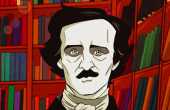gitte
Contributing writer for The Artifice.
Junior Contributor II
- Articles
1 - Featured
1 - Comments
6
- Ext. Comments
3 - Processed
0 - Revisions
0
- Topics
1 - Topics Taken
0 - Notes
2
- Topics Proc.
0 - Topics Rev.
0
- Points
175 - Rank
X - Score
78
Latest Articles
Latest Topics
“Dropping the Story” in FictionBuddhism teaches that we can let go of illusion by letting go of “our story,” i.e. letting go of our insistence on seeing reality our way. Many literary classics teach us the same lesson, sometimes through characters metamorphosing by undergoing evolutionary cycles including tragic moments. We see this struggle and more or less successful letting go performed by protagonists such as the Buddha, Oedipus, Shakespeare’s Hamlet, Henry James’ Maisie, Edith Wharton’s “Ethan Frome,” Ishiguro’s characters in The Remains of the Day, Toni Morrison’s Sethe in Beloved, and Murakami’s un-hero in The Wind-Up Bird Chronicle who learns to let go of all his stories by sitting in a dark well for a long time. The common theme in these fictions as well as in many others is letting go of illusion by letting go of one’s story, all unfolded in fiction. What sort of fiction must one invent to not add to the world of illusions? Does something distinguish these fictions in addition to the theme, something that makes them resist becoming part of our illusions? Or is it impossible not to add to the illusory? Where do commonalities between letting go of one’s story end and differences in consequences thereof open up, according to whatever works of fiction we decide to look at? What do these fictions have to say about what stories we rarely let go of? How does this theme of letting go of story in story speak to the story-telling during the global pandemic in 2020, specifically about the stories we tell of the “before-the-pandemic” world? Are we, like Murakami’s character, in the well, or are we emerging? How can we tell? Tell us. |
Latest Comments
| Poe's Horror: Reading "The Fall of The House of Usher" | |
Hi Siothrun, Thank you for being a supportive editor. Gitte | Poe's Horror: Reading "The Fall of The House of Usher" |
Hi Stephanie, Thank you for being a supportive editor. Gitte | Poe's Horror: Reading "The Fall of The House of Usher" |
Thank you for a great thematic comparison of the movies. I also appreciated the earlier comment of the movies as a commentary on the folly of any religion, perhaps even extreme belief. The problem for me was that I felt the folly extended to the way Midsommar was made. Midsommar was strangely simplistic and binary, particularly when it came to the portrayal of the so-called “pagans.” Just like there is no such thing as “Christians” being one thing, there is no such thing as “pagans” being one thing (over-sexed, submitting to a leader, eating with relish, sacrificing humans – the first Christians were accused of all those features, too, and they did none of them but the eucharist, baptism, and “brotherly” love were all misinterpreted). Indeed, in “Midsummer” the pagans conveniently behaved as if they could check off all boxes in someone’s stereotype of “pagans” which I found disappointing coming from an otherwise non-stereotypical director at a time in history where we assume such binaries have been troubled. Perhaps we didn’t know better when the Wicker Man was made. But now don’t we? What do you think? | Religion in The Wicker Man and Midsommar |
Interesting perspective on what happens when genre tropes wear themselves out, especially considering that one of the horror genre’s main tropes is intensity and if you crank that up too high, you don’t get max. intensity. I enjoyed your analysis, deadpan writing style, and recommendations. Yes, those movies re-write the tropes and to some extent the medium of film. Do you think it has to be both in order for a contemporary horror movie to be relevant (not just good entertainment)? Hereditary changes tropes and also what it means for something to be fiction in general. I think of a movie like Peele’s “Us” and how it does the same thing – including breaking down the notion that there is such a thing as a “genre” by itself of horror perhaps? | How Modern Horror Tropes are Revitalizing the Current Horror Genre |
Thank you for outlining the different interpretations and allowing them all to be co-valid. It is interesting to ponder how anyone can “portray” uncertainty, without pinning it down. If it was pinned down, ironically it would somehow become certain. Is Poe trying to show us an uncertainty where you are no longer certain if you know or don’t know anything? That would be a real horror. | Edgar Allan Poe's Ligeia: Dead or Alive? |

Hi Sunni Ago, Thank you for being a supportive editor. Gitte